Apple CEO Tim Cook has built an impressive fortune of $2.4 billion as of 2025, according to Forbes. The Alabama-born executive has transformed Apple from a struggling company into the world's most valuable tech giant, proving that disciplined leadership and operational excellence can create extraordinary wealth—even without founding equity.
Tim Cook's Early Career: From First Job to Corporate Success
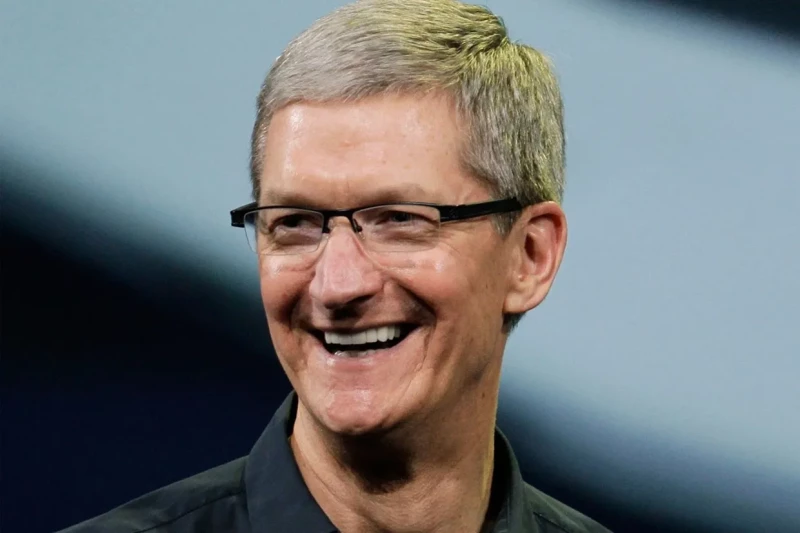
Cook's work ethic was shaped early in life, starting with a newspaper route at age 12 to save money for college. Growing up in Robertsdale, Alabama, with extremely modest means, young Tim worked part-time at a local pharmacy where his mother also had a job. At age 14, he moved up to flipping burgers at the fast-food chain Tastee-Freez, earning about $1.10 an hour and wearing a little hat that his friends enjoyed making fun of.
After earning a bachelor's degree in industrial engineering from Auburn University in 1982 and an MBA from Duke University in 1988, Cook spent twelve years climbing the ranks at IBM's personal computer business. He eventually became director of North American fulfillment, managing all manufacturing and distribution across the Americas. In 1994, Cook moved to Intelligent Electronics as chief operating officer of the Reseller Division. Three years later, he joined Compaq Computer Corporation as vice president of corporate materials, handling product inventory and procurement.
The Apple Transformation and Rising Earnings
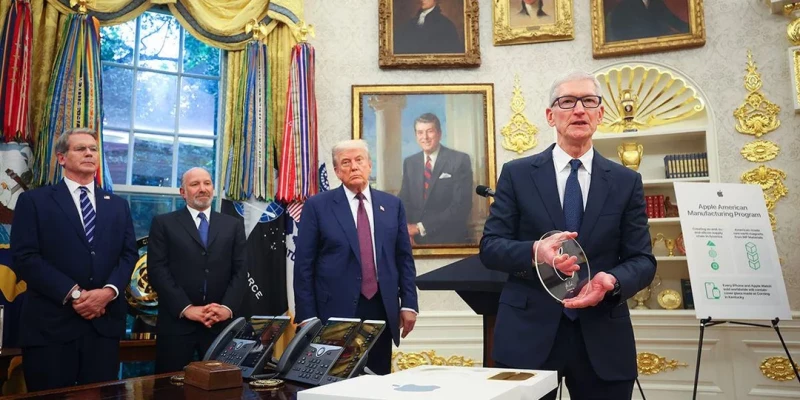
Everything changed in 1998 when Steve Jobs personally asked Cook to join Apple. Despite everyone advising him to stay at the more stable Compaq, Cook trusted his gut. "Any purely rational consideration of cost and benefits lined up in Compaq's favor," Cook later admitted. "But no more than five minutes into my initial interview with Steve, I wanted to throw caution and logic to the wind and join Apple."
When Cook first joined Apple as Senior Vice President of Worldwide Operations, his salary was around $500,000 per year. He revolutionized Apple's supply chain, closing factories, slashing inventory waste from months to just days, and making strategic long-term investments in components like flash memory. His operational genius quietly laid the foundation for Apple's explosive growth.
When Cook became CEO on August 24, 2011, following Steve Jobs' resignation, his salary jumped to $900,000 annually. But the real money came from stock awards and bonuses—that first year as CEO, Cook pulled in a staggering $378 million in total compensation. It was one of the largest pay packages in corporate history at the time.
Tim Cook Net Worth: Peak Wealth and Current Earnings
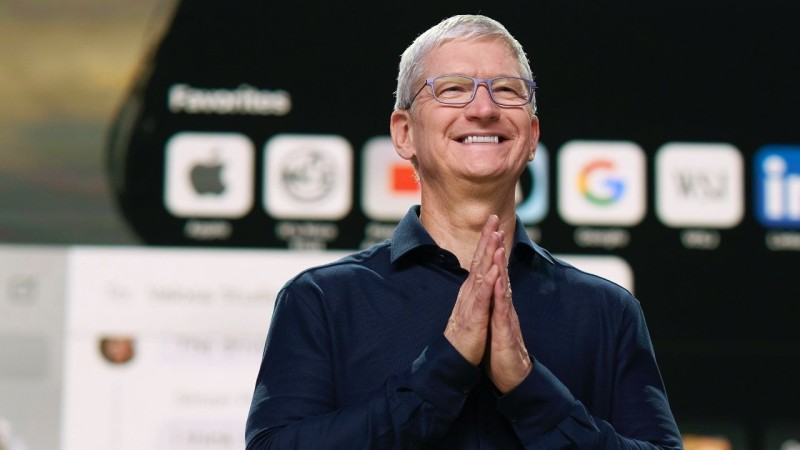
Since taking over Apple's top job, Cook has absolutely crushed it. Between 2011 and 2020, he doubled the company's revenue and profit. Under Steve Jobs, Apple's peak market cap hit $350 billion. Under Cook? It's soared as high as $3.5 trillion, making Apple the most valuable company on the planet. The company's market value has increased more than tenfold on his watch.
A decade into his CEO tenure, Cook hit another massive payday. In 2021, he cashed in on a ten-year performance stock grant, selling more than five million shares for approximately $750 million. In 2024, his total compensation package reached $63 million, which included his $3 million base salary, performance bonuses, and substantial stock grants that vest over time based on how well Apple performs.
As of early 2025, Cook personally owns about 3.28 million shares of Apple stock, valued at roughly $703 million at current prices. His tim cook net worth primarily comes from these holdings and unvested restricted stock units tied to Apple's performance through 2031. Unlike tech billionaires who built fortunes through founding companies, Cook has earned his wealth the old-fashioned way—through salary, bonuses, and performance-based stock compensation.
Tim Cook's Philosophy on How to Become Successful
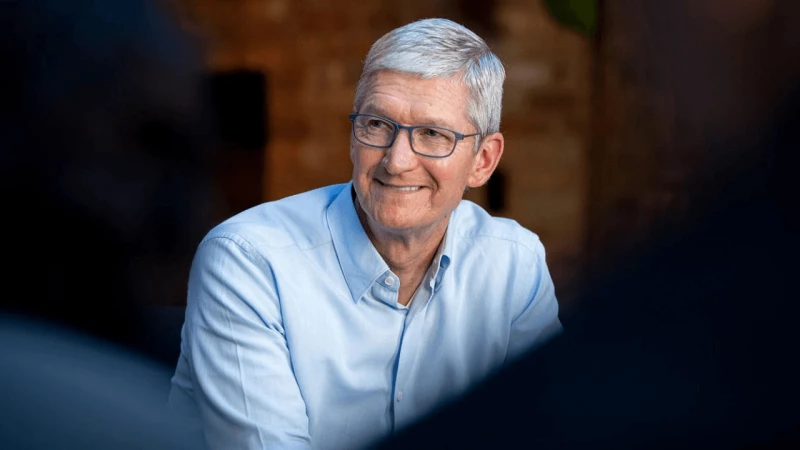
Over the years, Apple's CEO has shared plenty of wisdom about climbing to the top and staying there. His insights reveal a thoughtful leader who values courage, focus, and continuous learning.
- Take Calculated Risks: Cook firmly believes that "we take risks knowing that risks will sometimes result in failure, but without the possibility of failure there is no possibility of success." He's not reckless, but he's not afraid to bet big when it matters.
- Write Your Own Rules: During a Q&A at Duke University, Cook told students they must "write your own rules." If you just follow the playbook everyone else uses, you'll only ever reach the same place they do. Real success comes from forging your own path.
- Focus on Doing a Few Things Great: Cook stresses that Apple's success comes from focus, not breadth. "If you really look at it, we have four iPods. We have two main iPhones. We have two iPads, and we have a few Macs. That's it," he's explained. The company argues and debates intensely about what to pursue because they know they can only do a few things exceptionally well.
- Have the Courage to Change Your Mind: Cook learned this directly from Steve Jobs. "The most underappreciated thing about Steve was that he had the courage to change his mind," Cook says. Too many executives get stuck in their old ideas and refuse to admit when they're wrong. The best leaders evolve their thinking when presented with new information.
- Think Before You Speak: Cook follows what he calls the "Rule of Awkward Silence"—taking time to think things through completely before responding, even if the pause gets uncomfortable. This simple practice helps him make better decisions, avoid mistakes, and communicate more effectively.
- Lead with Values and Transparency: Cook believes transparency is crucial to sustained success. When Apple faced criticism about working conditions at manufacturing partners, he opened the doors and invited the world to see how operations really worked. He wants diversity of thought and style, and believes people shouldn't have to pretend to be someone else at work. What ties everyone together are shared values—doing the right thing, being honest and straightforward, and having the courage to admit mistakes.
- Stay Humble and Connected: Despite running the world's most valuable company, Cook regularly walks around Apple stores, reads customer emails, and talks to people face-to-face. "Not allowing yourself to become insular is very important—maybe the most important thing as a CEO," he's said.
Despite his enormous wealth, Cook has no plans to slow down. He doesn't see retirement happening in the traditional sense. "I don't see being at home doing nothing and not being intellectually stimulated," he's explained. Work, for him, isn't just about making money—it's part of his purpose. And true to his values, Cook plans to give most of his fortune away to charity before he dies, having already donated tens of millions to various causes.
From flipping burgers for $1.10 an hour to leading a $3 trillion company, Tim Cook's journey shows that hard work, operational excellence, and staying true to your values can take you further than you ever imagined.
 Eseandre Mordi
Eseandre Mordi
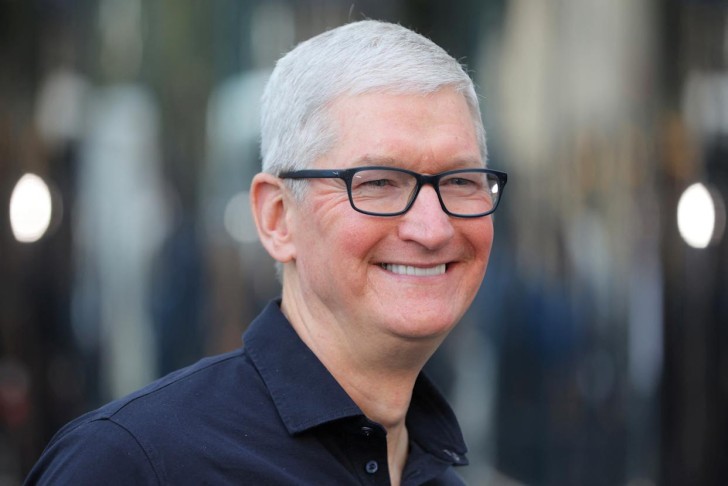
 Eseandre Mordi
Eseandre Mordi


